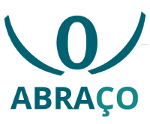
Postdoctoral Fellowships in Neuromathematics and Stochastic Modeling of the Brain, São Paulo, Brazil
Jun 26, 2020
The Research, Innovation and Dissemination Center for Neuromathematics (NeuroMat), hosted by the University of São Paulo, Brazil, and funded by the São Paulo Research Foundation (FAPESP), is offering three post-doctoral fellowships for recent PhDs with outstanding research potential. The research will involve collaborations with experimental and theoretical groups and laboratories associated to NeuroMat.
The research to be developed by the post-doc fellows shall be strictly related to ongoing research lines developed by the NeuroMat team. The project may be developed at USP (main campus, São Paulo), USP campus Ribeirão Preto or University of Campinas (UNICAMP).
We seek candidates capable to develop independent research in one of the research lines below.
- Stochastic and/or computational modeling of the brain functioning;
- Acquisition, processing and quantitative analysis of electrophysiological data;
- Biomedical devices for neuroscience research.
Candidates to the first research line are required to have at least one of the profiles below:
- A strong background in probability theory with emphasis on stochastic processes. Previous knowledge of rigorous statistical mechanics or random graphs will be favorably considered; and/or
- A strong mathematical and/or computational background and experience with computers and programming. Previous experience with development and/or simulation of neural brain models, complex networks and parallel computing will be favorably considered.
Candidates to the second research line are required to have at least one of the profiles below:
- A strong background in neuroscience with previous experience in neurophysiological data acquisition, processing and analysis, and knowledge of computer programming; and/or
- A strong background in computer science with experience in the development of algorithms, software tools and databases. Previous research experience in neuroscience or related areas will be favorably considered.
Candidates to the third research line are required to have at least one of the profiles below:
- A strong background in electromagnetism and biomedical engineering. Previous knowledge of transcranial magnetic stimulation or magnetic/electric field simulation will be favorably considered; and/or
- A strong background in computer science and control software development expertise. Previous experience with neuroscience and neuronavigation systems will be favorably considered.
Previous experience with multidisciplinary research teams is welcome for all the above research lines.
Application Instructions
Applicants should complete and submit the application form. The following documents and information are requested (please see the form for further details):
- Summary of the CV, in the FAPESP format (see fapesp.br/en/6351 for instructions);
- List of publications, with links to those available online;
- A summary of the research plan for the next year, up to 5 pages length. It should explicitly state for which of the three above profiles the candidate is applying. It should also address its place within the framework of the NeuroMat research program.
- Pointers to other research related output, such as software, web pages, and so forth. Candidates should be willing to send copies of publications, if requested;
- Any further information deemed relevant to the application.
In addition to the above, we require at least two recommendation letters. Those should be mailed by the recommenders directly to postdoc-appl@numec.prp.usp.br.
FAPESP requirements
The candidate should have concluded a doctorate less than seven years before the beginning of the PD fellowship.
The fellowship demands full-time dedication to the research project (except under conditions outlined in resolution PR No 13/2009, 15 July 2009).
The fellowship holder may not hold any formal or informal employment nor receive, during the term of the fellowship, a fellowship from another entity, salary or remuneration deriving from the exercise of activities of whatever nature (except under conditions outlined in the decree PR No 13/2009, 15 July 2009).
Timetable
Candidates are encouraged to apply at their earliest convenience until August 16, 2020. Appointments are expected to start by November 1st, 2020. The initial period of the position lasts for 12 months, with possible renovations for up to three years.
This opportunity is open to candidates of any nationality. The selected candidates will be awarded FAPESP Post-Doctoral fellowships in the amount of R$ 7,373.10 monthly and a research contingency fund, equivalent to 15% of the annual value of the fellowship, which should be spent in items directly related to the research activity. Check the rules of FAPESP post-doctoral fellowships at: fapesp.br/en/5427.
Share on Twitter Share on Facebook| NeuroCineMat |
|---|
|
Featuring this week: |
| Newsletter |
|---|
|
Stay informed on our latest news! |
| Follow Us on Facebook |
|---|




